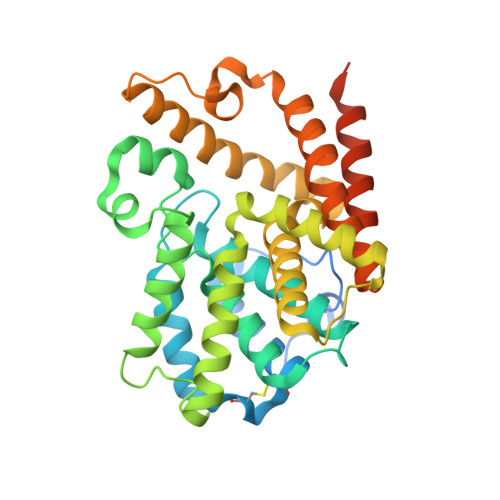Synthesis and preliminary biological evaluation of potent and selective 2-(3-alkoxy-1-azetidinyl) quinolines as novel PDE10A inhibitors with improved solubility.
Rzasa, R.M., Frohn, M.J., Andrews, K.L., Chmait, S., Chen, N., Clarine, J.G., Davis, C., Eastwood, H.A., Horne, D.B., Hu, E., Jones, A.D., Kaller, M.R., Kunz, R.K., Miller, S., Monenschein, H., Nguyen, T., Pickrell, A.J., Porter, A., Reichelt, A., Zhao, X., Treanor, J.J., Allen, J.R.(2014) Bioorg Med Chem 22: 6570-6585
- PubMed: 25456383
- DOI: https://doi.org/10.1016/j.bmc.2014.10.013
- Primary Citation of Related Structures:
4TPM, 4TPP - PubMed Abstract:
We report the discovery of a novel series of 2-(3-alkoxy-1-azetidinyl) quinolines as potent and selective PDE10A inhibitors. Structure-activity studies improved the solubility (pH 7.4) and maintained high PDE10A activity compared to initial lead compound 3, with select compounds demonstrating good oral bioavailability. X-ray crystallographic studies revealed two distinct binding modes to the catalytic site of the PDE10A enzyme. An ex vivo receptor occupancy assay in rats demonstrated that this series of compounds covered the target within the striatum.
- Department of Medicinal Chemistry, Amgen Inc., One Amgen Center Drive, Thousand Oaks, CA 91320-1799, USA. Electronic address: rrzasa@amgen.com.
Organizational Affiliation:




















